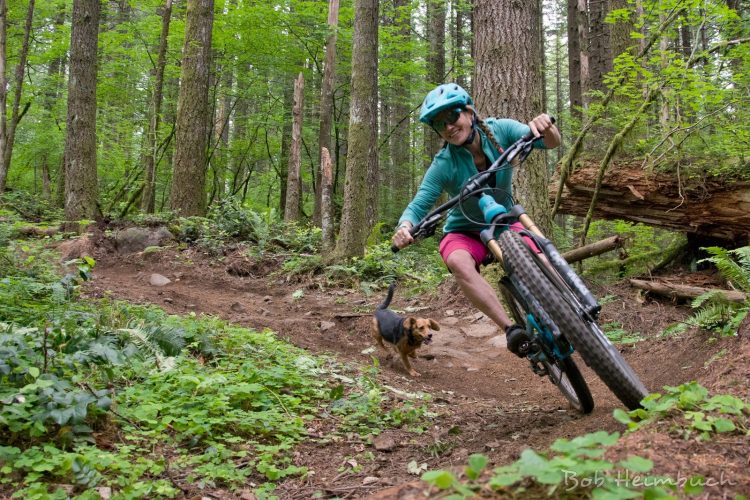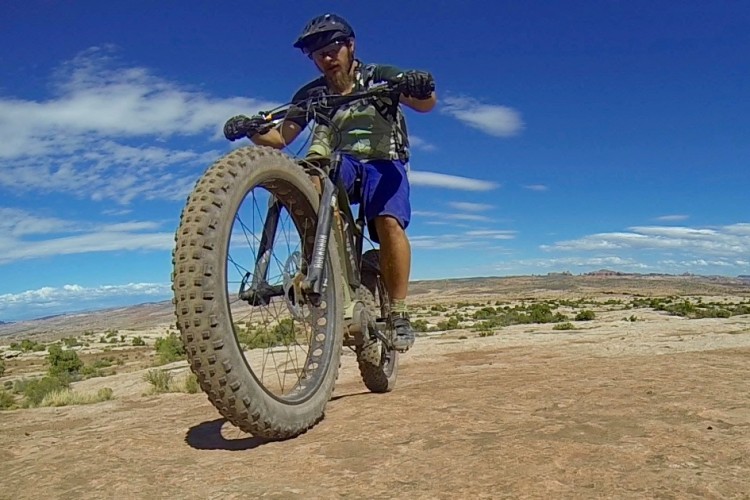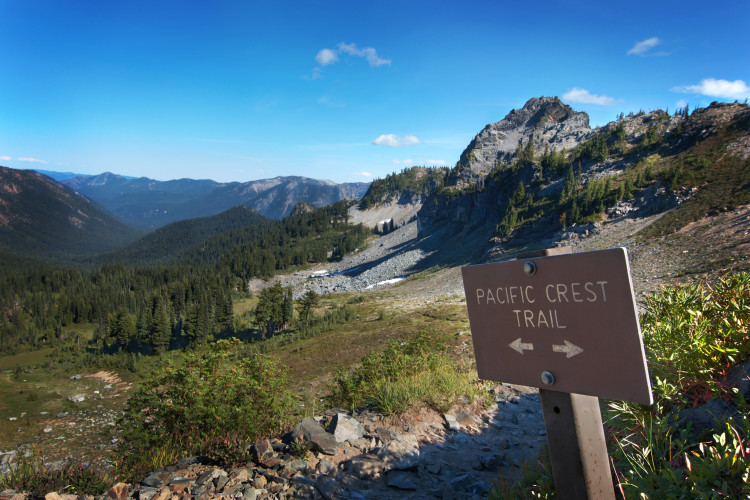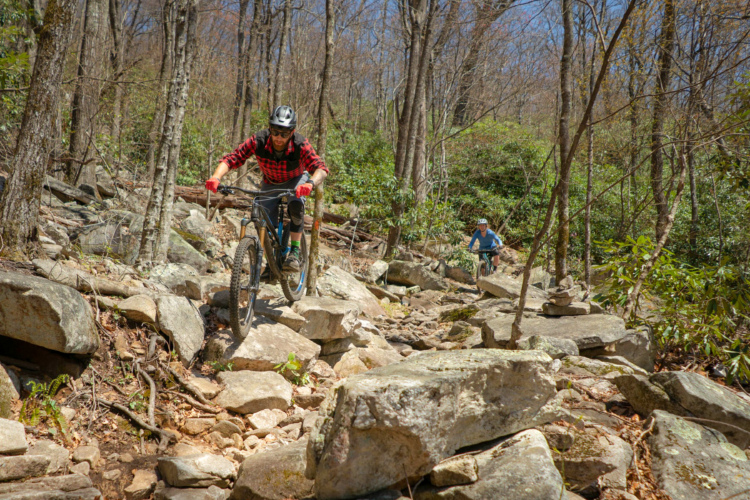PRESS RELEASE
December 11, 2015
For immediate release
Sustainable Trails Coalition (STC) is pleased to respond to the allegations recently leveled against STC in public forums by the well-known mountain biker Ashley Korenblat. Ashley is the chief executive officer of Western Spirit Cycling, a former president of the International Mountain Bicycling Association (IMBA) board, and managing director of Public Land Solutions.
STC thanks Ashley for cataloguing the many misunderstandings she has about what we’re doing. We’re not alone in our gratitude. Shortly after Ashley began accusing STC of various forms of naïveté, more money—thousands of dollars—started coming in to STC. This is no coincidence. To the extent our community is voting with dollars, it’s siding with STC.
Let us set the record straight.
(1) STC seeks an exceedingly modest reform. Our desired legislation would continue to let government officials ban bikes in Wilderness and on National Scenic Trails. But they would do it at the local level, based on local input and knowledge.
(2) Our proposed legislation would merely restore the regulatory plan that the Forest Service itself had in effect from 1981 to 1984, before it solidified the blanket bicycle ban in Wilderness. It was during that period, specifically June 1982, that the Forest Service told itself, in a little-known internal memorandum, “we can look at these types of ‘vehicles’ [i.e., bicycles] as being primitive, muscle powered, aids to transporting” people in Wilderness. So it allowed local land managers to decide on bicycle access, just as we hope to achieve. Then someone whispered in the agency’s ear and in 1984 it changed its mind and solidified the bicycle ban.
That should allay any reasonable concerns. To be sure, if anyone likes the comprehensive bicycle ban in Wilderness and on the Pacific Crest Trail—no access to a single inch of trail anywhere, anytime, under any circumstances—nothing we say will make them happy.
Those people, however, should be aware that what has been the slow death of a thousand cuts for singletrack access is now turning into death by rapid blood loss. The newly-formed Save Montana Trails group states, “over the last five years, nearly 800 miles of trail in Montana have been closed or are at risk of being closed to bikes. During their Travel Planning, the National Forests in Montana have implemented a new policy that wilderness study areas and recommended wilderness areas will be managed as wilderness when it comes to bikes.”
In the New Mexico episode that Ashley cites as a success, here is the assessment of well-known mountain bike advocate John Fisch. While agreeing with Ashley about “the redrawing of an existing Wilderness boundary to move a portion which was inside the boundary, outside of it,” John concludes: “IMBA and many other agencies involved with the crafting of this legislation are understandably trumpeting the success of this wonderful compromise. However, not all is rosy in MTB-land. The Columbine Hondo Wilderness contains 75 miles of singletrack which is now permanently off limits to mountain biking. In what is becoming a disturbing trend, IMBA and others rave about ‘compromises’ which are in effect significant net losses. Among the many losses is the Goose Lake Trail, a singletrack route which has been ridden by cyclists for decades. . . . Cyclists will still be able to access Goose Lake legally, but only by taking a jeep road which still exists as a narrow stem protruding into the Wilderness Area.”
To quote Pyrrhus, “One more such victory and we are undone.” Pyrrhus’s army was devastated by the loss of 3,000 troops at the Battle of Asculum in 279 B.C., even though it managed to kill 8,000 Romans. (That’s where the term Pyrrhic victory comes from.) If only traditional mountain bike advocacy had recently achieved as good a ratio of trail preservation to trail losses as Pyrrhus’s lamented ratio! Alas, it’s nowhere close. Just look at Montana. Or, according to John Fisch, New Mexico.
Finally, Ashley casts doubt on the efficacy of our efforts. (Oddly, she condemns our supposed litigation strategy, which leaves us scratching our heads. Who’s suing anyone? Not us.) Those of you who have donated to us or otherwise support us can be assured of the following:
These days, any legislative effort is an uphill battle. Even the naming of a post office can be controversial in today’s divided Congress. Moreover, it took eight years to pass the Wilderness Act of 1964. A bill was first introduced in 1956. Although we expect to have a bill introduced in the first quarter of 2016, we have no illusions that it’s guaranteed to become law within months.
But if we cannot achieve our goals—the loosening of the blanket bicycle bans in Wilderness and on the Pacific Crest Trail, and the undoing of recent Forest Service actions that are closing off hundreds of miles of non-Wilderness singletrack to mountain bikers—we think no one can. Here’s why.
(1) We have two superb lobbyists. Their energy is extraordinary. They e-mail us on Sunday nights. They e-mail us in the wee hours of the morning. They have dozens or hundreds of connections to members of Congress, their staffs, and congressional committee staffs. They forbid us to report publicly on their progress, but it’s far more advanced than anything Ashley is imagining. Although they are not mountain bikers, their personal commitment to freeing the singletrack, and the amount of time they’re spending on it, well exceeds what we’re paying them, although their services indeed are expensive.
Our lobbyists are finding members of Congress and their staffs saying, in effect, “What? You can’t ride a bicycle in a Wilderness? Never heard of such a thing.” And so we are getting support from these puzzled legislators. From Republicans. From Democrats. In the House. And in the Senate. Stay tuned.
(2) STC’s board members have zero learned helplessness. That’s a well-known psychological syndrome that happens when people are beaten down by their opponents over 20 years. Eventually, they reach only for crumbs. We’re too new to have been beaten down and lowered our expectations to just off the floor.
(3) Our donors have been magnanimous beyond all expectations. They have funded our lobbyists for six months and we’re halfway to being able to pay them for the third quarter, which will begin in March of 2016. The STC board is truly grateful.
We have been rebuffed, I am sorry to say, by all of the major bike manufacturers we’ve approached for financial support. One told us that it thinks the current mountain biking institutions are doing wonderful lobbying work and it would like us to go away. Maybe we’re annoyingly asking for lobbying money certain companies would rather devote to getting e-bikes on nonmotorized singletrack.
You have to wonder what those companies will be saying when sales slump after the Forest Service decides every trail in a roadless area in the United States will henceforth be closed to mountain biking, on the grounds that, to quote a Forest Service statement posted on the Save Montana Trails website, “. . . allowing uses that do not conform to wilderness character creates a constituency that will have a strong propensity to oppose recommendation and any subsequent designation legislation. Management actions that create this operating environment will complicate the decision process for Forest Service managers and members of Congress.”
In other words, the Forest Service no longer wants bikes anywhere that might become Wilderness, because mountain bikers will then irritate the Forest Service by asking to be allowed to keep riding where they have for decades. No amount of cynicism can prepare one for attitudes like this.
STC will win or lose, but at least someone will have tried. That’s a first in our community.
Ted Stroll is one of the co-founders of the Sustainable Trails Coalition.











10 Comments
Dec 11, 2015
Dec 12, 2015
The real question is, what form(s) of locomotion should be acceptable, given that we are in it? I believe that any equally low impact, human powered form of locomotion should be treated equally.
Dec 12, 2015
Dec 12, 2015
Dec 15, 2015
Like it of not, high tech bikes and bikers around in the wildernesses doesn't really create that experience of no alteration for other trail users. By saying this I have officially started defending equestrians, and that can cause ruckus with some bikers. Also I realize this isn't the strongest point to argue, so I have admitted defeat. I thank you for participating in a healthy butting of heads. I have come away more educated and with a different view on the topic from when I came in, and I hope you have too.
Dec 15, 2015
I have carefully considered the point you are making. I feel particularly well suited to address it since I was a hiker/backpacker exclusively starting at age 9 and didn't get my first bike until age 35. In all those hundreds (thousands?) of encounters with bikes while I was on foot, I never felt like my hiking experience was degraded by encountering a cyclist. In fact, it was all those positive encounters with other low-impact, human-powered trail users which led me to first consider adding cycling to my palette of backcountry travel methods.
Now, while my experience was never degraded, I get that some others just cant get past their perception of a bike (which,after all, is no more "tech" than many of the goodies hikers themselves bring into the back country like ipods, GPS, ultalight fossil fuel burning campstoves, etc). As such, there is an easy solution: shared use schedules. These would still give bikes occasional access and preserve occasional hiker-only access. These have proven highly successful everywhere from badly overcrowded trails near urban centers to remote backcountry routes where solitude is most cherished.
Dec 13, 2015
I recognize I was unclear on my "Before us" statement. I mean what the land was like before industrialism, before we altered the land in so many ways, not literally us. Also, I don't think it matters how we go about transporting ourselves (not meaning trail etiquette, more traveling with modern equipment) as it is how we transport ourselves in the wilderness that matters.
Dec 14, 2015
" . . . before we altered the land in so many ways,"
Right there, you're hitting directly on the very point of Wilderness as intended--the preservation of our wild places without all the infrastructure man requires for his artificially powered vehicles.
The bike requires no more alteration than the existence of a trail--the same trail used by the hiker and the equestrian.
Dec 12, 2015
Dec 12, 2015
The principle of you post with regard to the hiker-centrist elitism is on the mark. However, this is no time to be throwing out divisiveness partisanship. You can not accurately make blanket party condemnation statements on the issue. The recent losses is the Boulder White Clouds were the result of a Wilderness bill written and sponsored by the Republican representatives of that state.